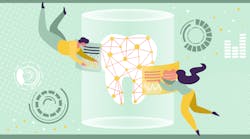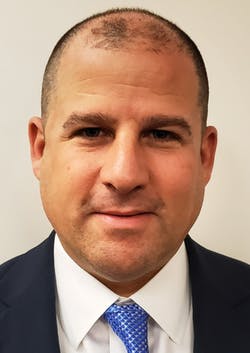As we navigate the effects of the coronavirus pandemic, there is a lot to process—physically, mentally, professionally, and financially. While there is no doubt that there are things we’d like to change, the old adage applies: It is what it is. We must look forward to better days, just as everyone else is. Now is not the time to fall to the ground and be despondent. In fact, it’s high time to think about what the dental industry can learn from this...and what you can learn too.
There is no doubt that all of us are involved in the same conversations right now: Can we stay open? Can we pay people? What will become of our businesses? There is room for reassurance here: dental is one of the last industries that could possibly dry up from something like this. Be thankful this is your field and not retail, travel, or hospitality. There are helpful programs available. The CARES Act provides several different relief packages for small businesses to seek assistance with financial burdens. Deferring loan payments is an option for most businesses, too. This situation is uncharted territory, so everyone is working toward a common goal of survival.
You might be considering letting go of critical staff to lighten your financial burden, but you might want to give that second thought. It takes much more of a financial toll to hire and train new employees than it does to retain productive ones. There are other ways to weather a storm and stay busy when patients aren’t coming through the door. Depending on the state you live in, it might be helpful to stay open for emergencies on a limited basis. If you can’t be open, perhaps diagnosing through teledentistry is an option. Besides providing a valuable service, word will get around. Referrals can and will come in for those who are not open. Consider this a great time to meet new patients, give current patients your undivided attention, and prepare everyone for when things get back to normal.
Whether you are open or not, it’s wise to use your free time to your advantage. Every single one of us does something daily that they could be done more efficiently. Take a class on YouTube on typing, making PowerPoint presentations, or creating PDF flyers for your business. Not you? It can take as few as 18 days to make a behavior a habit.1 Pick one you need and make it happen.
It also helps to be happy with something now. In The Happiness Advantage, author Shawn Achor details the premise that people who are happy achieve success simply from being so.2 (Full disclosure: I’ve read the book and am a believer.) Start small. Remind yourself how grateful you are to be spending more time with your family—no matter how loud they are. (Pro tip: If you let your kids stay up really late, they won’t bother you or your work until well after lunchtime!)
Regarding the future, know that discussions are taking place about what the post-coronavirus dental office should look like. It’s time for all of us to contemplate that thought. I know my team is talking about it intensely. Think of concepts such as sterilization, hygiene, and sanitized. These will set an office apart. Think about your office surfaces; the placement of disposed-of hazardous material containers; and the new minimum standards for face protection. Equipment that reduces patient spray (aerosol/droplet removal) will come into play in a big way for patient and employee safety. If you’ve been putting off the Steri-Center of your dreams until now, this is a great time to perform your due diligence and get a step ahead of the competition.
One thing is for sure: When things return to normal, your patients will be better educated about sterilization concepts. They will be much more aware of seeing sterilization in play. Think about it: If you went to a friend’s house and felt uncomfortable with how clean the\ house was, would you say something or simply visit a lot less often? Patients and employees will be oh-so-picky about their surroundings.
Dental professionals are predicting a patient migration. The cleanest—and cleanest-looking—offices will see rewards for their efforts. The time for trying to bleed another few months out of your six-year-old sterilizer is over. Manufacturers are already preparing and innovating for the new normal, and you should be too.
References
- Frothingham S. How long does it take for a new behavior to become automatic? Healthline. Published October 24, 2019. https://www.healthline.com/health/how-long-does-it-take-to-form-a-habit
- Achor S. The Happiness Advantage. New York, NY: Random House Inc; 2010.
Matthew Newman is the operations manager for the Baltimore/District of Columbia/Northern Virginia region of Patterson Dental. With 20 years of experience in operational management, he has spent the bulk of his time in both business-to-business/distribution and hospitality. He can be reached via messenger on LinkedIn (linkedin.com/in/matthew-newman-9582979/).
Additional articles:
Is there a gap between sales and operations? Yes, and it needs to be bridged







